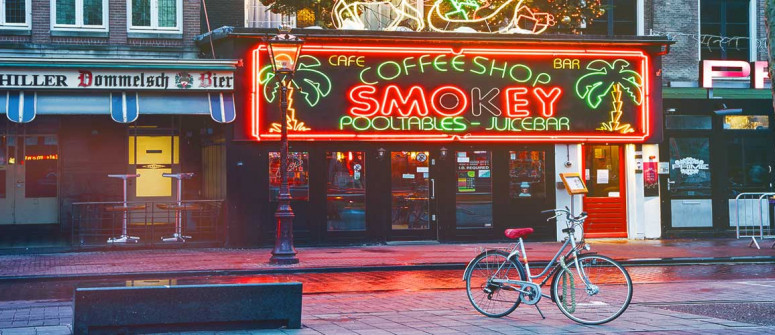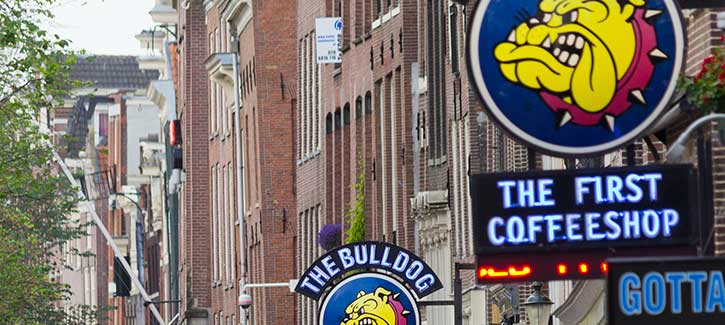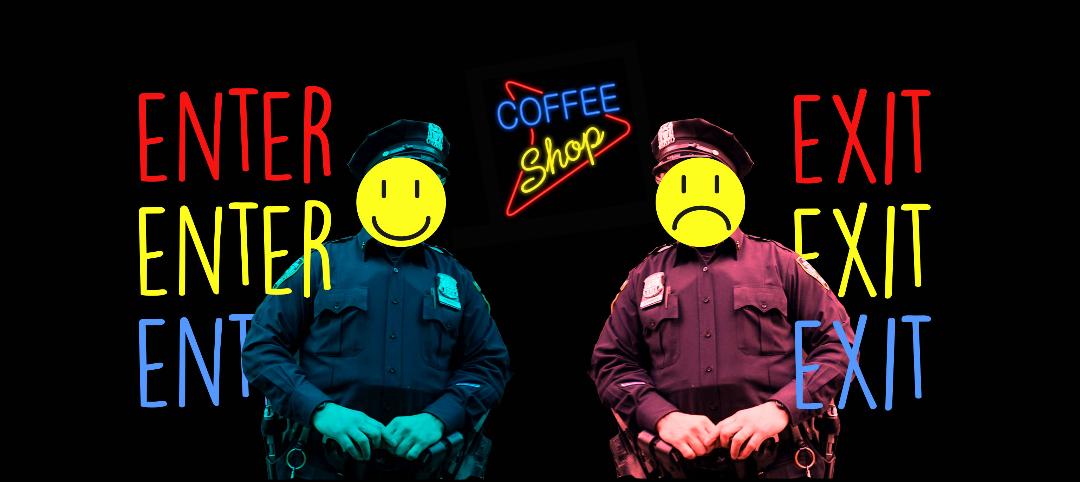The history and law of coffeeshops in amsterdam

The coffeeshops in Amsterdam (The Netherlands) are famous all across the world. Find out about their rich history and how they operate.
Amsterdam coffeeshops are famous around the world and attract millions of tourists every year. For many cannabis connoisseurs, making it to Amsterdam, The Netherlands is like making it to Mecca.
But, contrary to popular belief, the coffeeshop system in Amsterdam isn’t as liberal as it seems. Coffeeshops have to adhere to strict regulations and cannabis is still technically illegal across the country. So how exactly do these shops operate?
The infamous coffeeshop culture of Amsterdam and other parts of The Netherlands dates back to the 1980s.
During this time, The Netherlands adapted its drug policy to be more tolerant of drug users while still taking a hard stance against the illegal drug trade.
Prior to this, The Netherlands had similar drug laws to other countries around the world. Following the first ever international Opium convention in The Hague in 1911, Holland introduced its first Opium Law in 1919.
The law was primarily concerned with controlling the trade of opium but also extended to other substances, such as morphine, cocaine, heroin, barbiturates, amphetamines, etc. By the 1970s, with the growing use of cannabis, hashish, and LSD, the Dutch government had to amend its laws to control all substances while clearly distinguishing between drugs that caused serious risks of addiction or physical harm and those that didn’t.
This gave birth to the distinction between “hard” and “soft” drugs. The official legislative changes to introduce this policy took place in 1976. In 1980, the Dutch government finally announced it would discontinue prosecuting cannabis and hashish offenses under certain circumstances.
This essentially lead people to sell cannabis in coffeeshops and caused a huge increase in the number of coffeeshops across the country. In order to control these sales, the government introduced restrictions on coffeeshops in 1996.

Today, in order for coffeeshops to avoid any legal issues, they must adhere to strict conditions. These include:
- The coffeeshop must not advertise the sale of cannabis or any other drugs.
- No hard drugs are to be present on the premises.
- For a coffeeshop it's not allowed to have more than 500 grams on stock in the building
- Sales must not be made to minors (under 18).
- Sales must not exceed 5 grams per day.
- No minors must be on the premises.
- The coffeeshop and its customers must not cause any public disturbances.
Coffeeshops are allowed to sell food and drink but must not sell alcohol. The advertising laws are more restrictive than prohibitive, so many shops still advertise by using red, yellow, and green reggae/rasta flags or images of marijuana leaves to indicate that they sell cannabis.
Failing to adhere to these regulations is punishable by law, and coffeeshops risk temporary (for between 3-6 months) or, in some cases, permanent closure. Coffeeshops also cannot operate within a 250m radius of a school.
DRUG POLICY IN THE NETHERLANDS:
Many people think that cannabis and other drugs are legal in The Netherlands. However, this isn’t true; drugs are illegal in Holland, as is the possession, cultivation, and distribution of drugs. However, The Netherlands has taken a particularly tolerant approach to cannabis, which it considers a “soft drug.”
This distinction between substances and the tolerant policies that have made The Netherlands so famous are part of a plan to treat drug abuse as a health issue instead of a criminal problem. Hence, the sale and possession of small amounts of cannabis are now illegal but not punishable by law.
THE BACKDOOR PROBLEM

While The Netherlands’ drug policy may be revered by many, it’s not without its faults.
While consumers can purchase cannabis from a coffeeshop, the shop itself has no legal way of accessing the cannabis it sells. This is because the cultivation and sale of large amounts of cannabis are still illegal under current laws. This problem is known as the “backdoor problem” because the “front door of the store is open, while the back door remains closed.”
This problem is a hot topic in The Netherlands, with many people (including political figures such as mayors) promoting the idea that cannabis cultivation and sales be controlled so that coffeeshops can operate legally and the police department can save the resources it uses to track down illegal grow operations.
However, complete legalization of the cannabis market isn’t as popular in The Netherlands, or at least among its political leaders, as it might seem. Hence, the backdoor policy still exists and coffeeshops continue to struggle against the problems of this policy.
.jpg)
.jpg)

.jpg)
